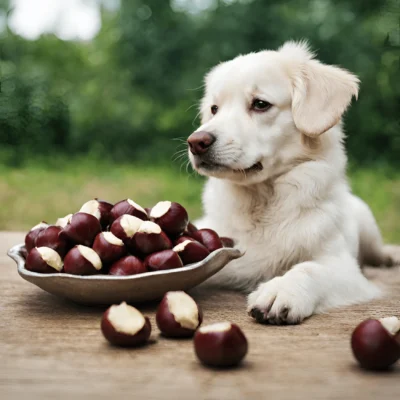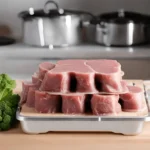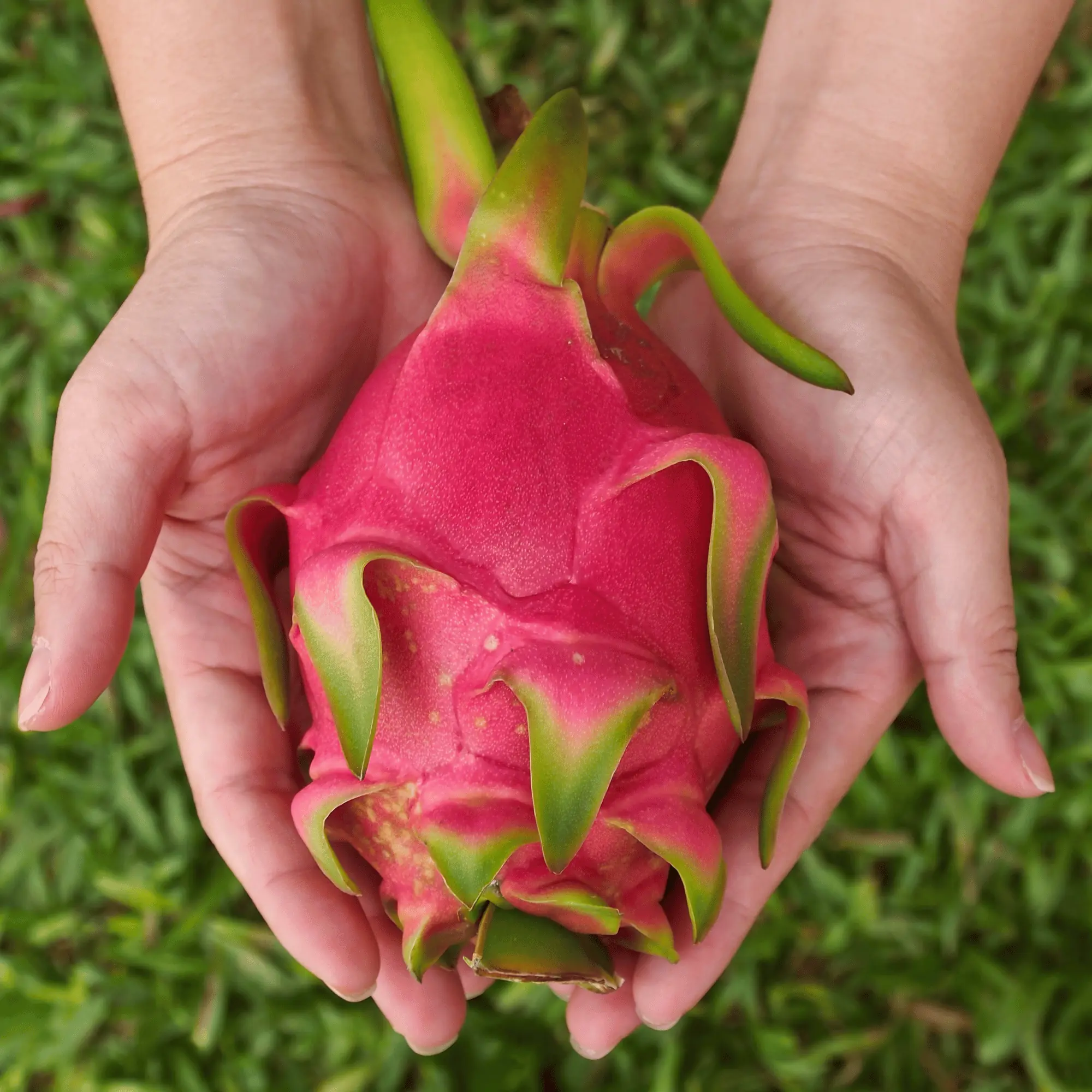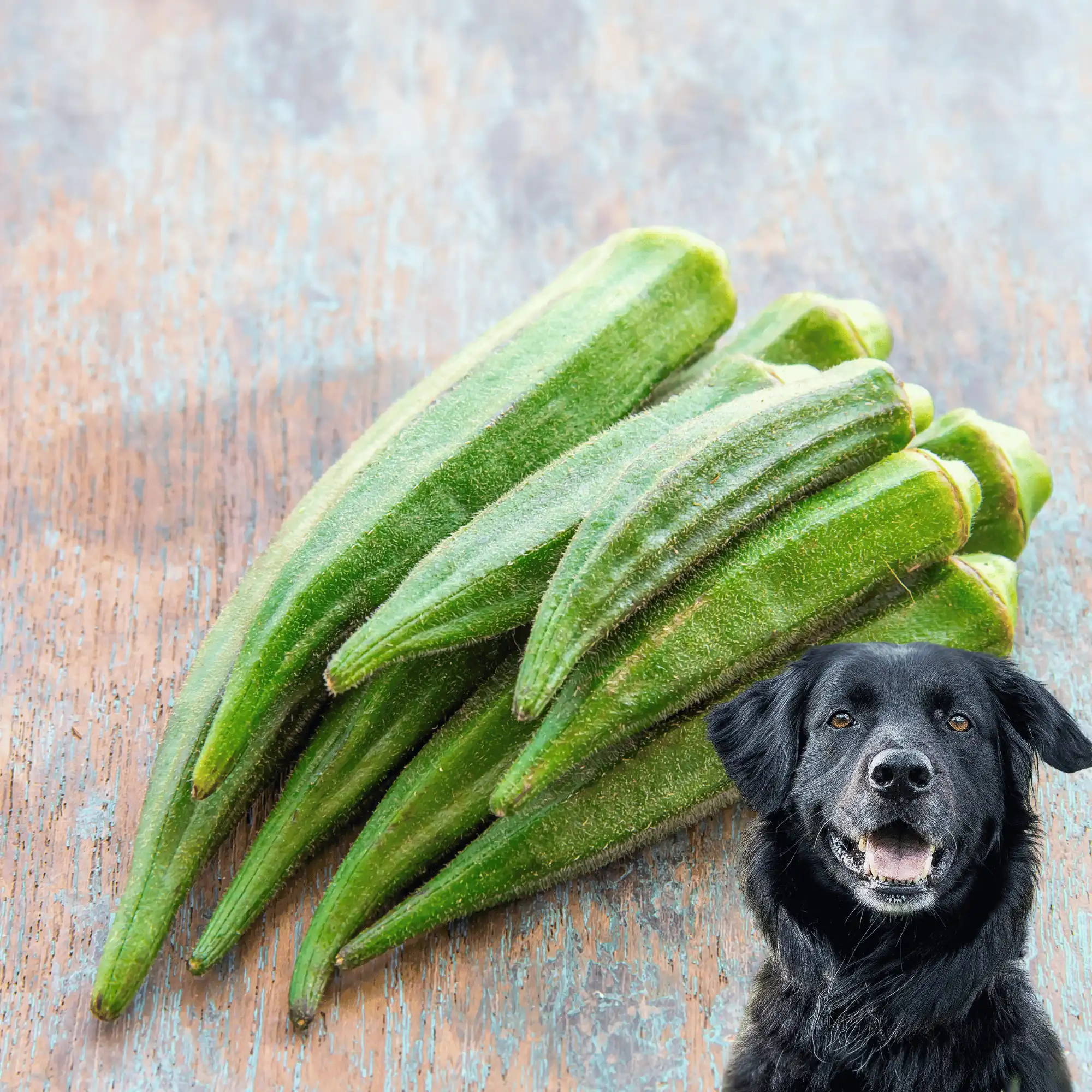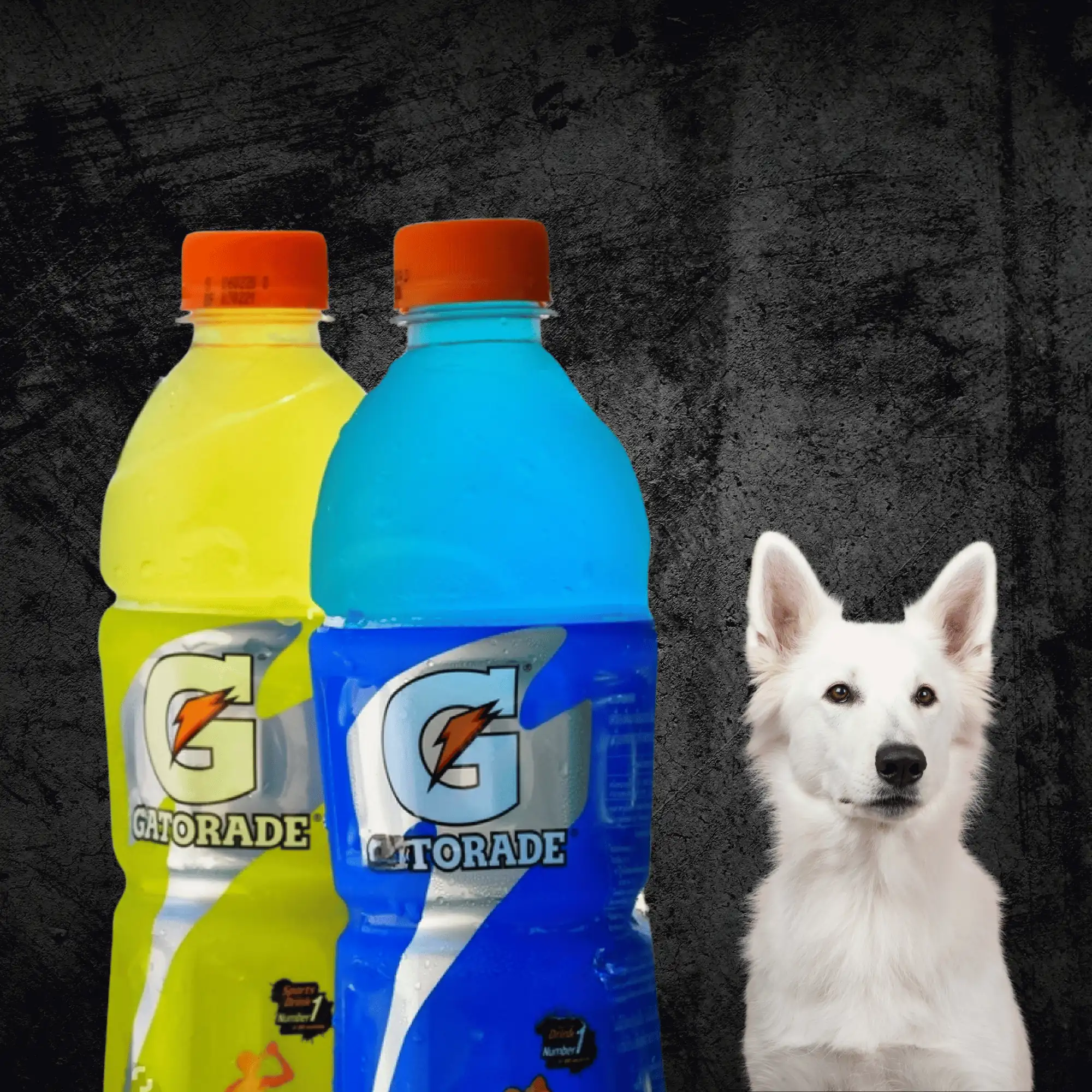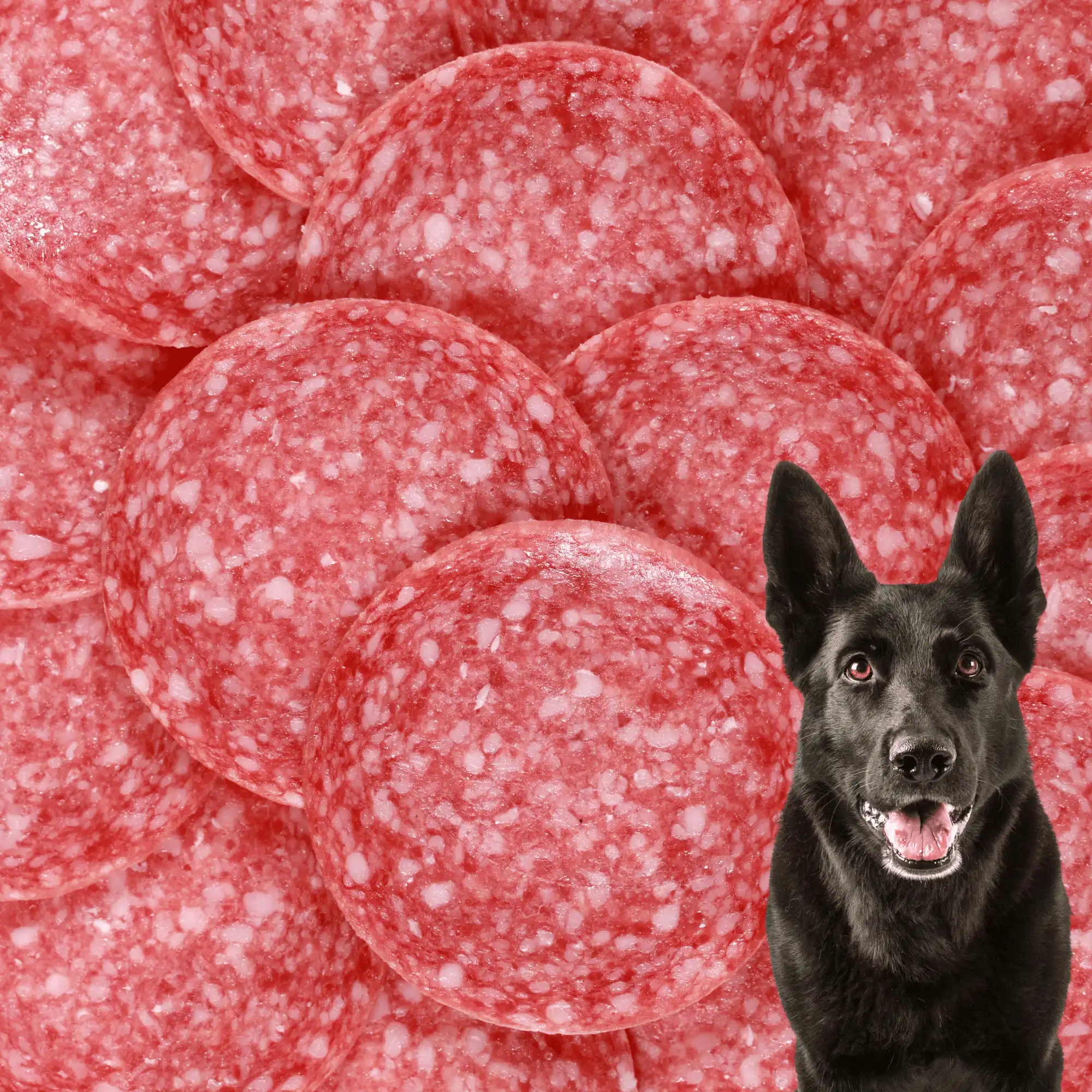Dogs are always hungry, and sometimes they beg for the food we’re munching on. However, there’s an issue with sharing food with your dog. While some human foods are safe for our canine companions, others can cause serious health issues. One food that people may want to share with their furry friends is water chestnut. They can be a tempting treat for your dog, but the question is, are they safe to share?
The short answer is yes, dogs can eat small amounts of water chestnuts, but you should always peel and chop them before offering the food to your pet. Additionally, there are some other important things to keep in mind before sharing water chestnuts with your pup. In this article, we will discuss everything you need to know about feeding water chestnuts to dogs, including:
- What are Water Chestnuts?
- Can Dogs Eat Water Chestnuts?
- 4 Benefits of Feeding Water Chestnuts to Dogs
- 4 Health Risks of Feeding Water Chestnuts to Dogs
- How to Safely Feed Water Chestnuts to Dogs?
- Other Crunchy Treats That Are Safe and Healthy for Dogs
By the end of this article, you’ll be able to make an informed decision on whether or not to share water chestnuts with your furry friend. So, get ready to dive into the world of crunchy goodness for dogs!
What are Water Chestnuts?
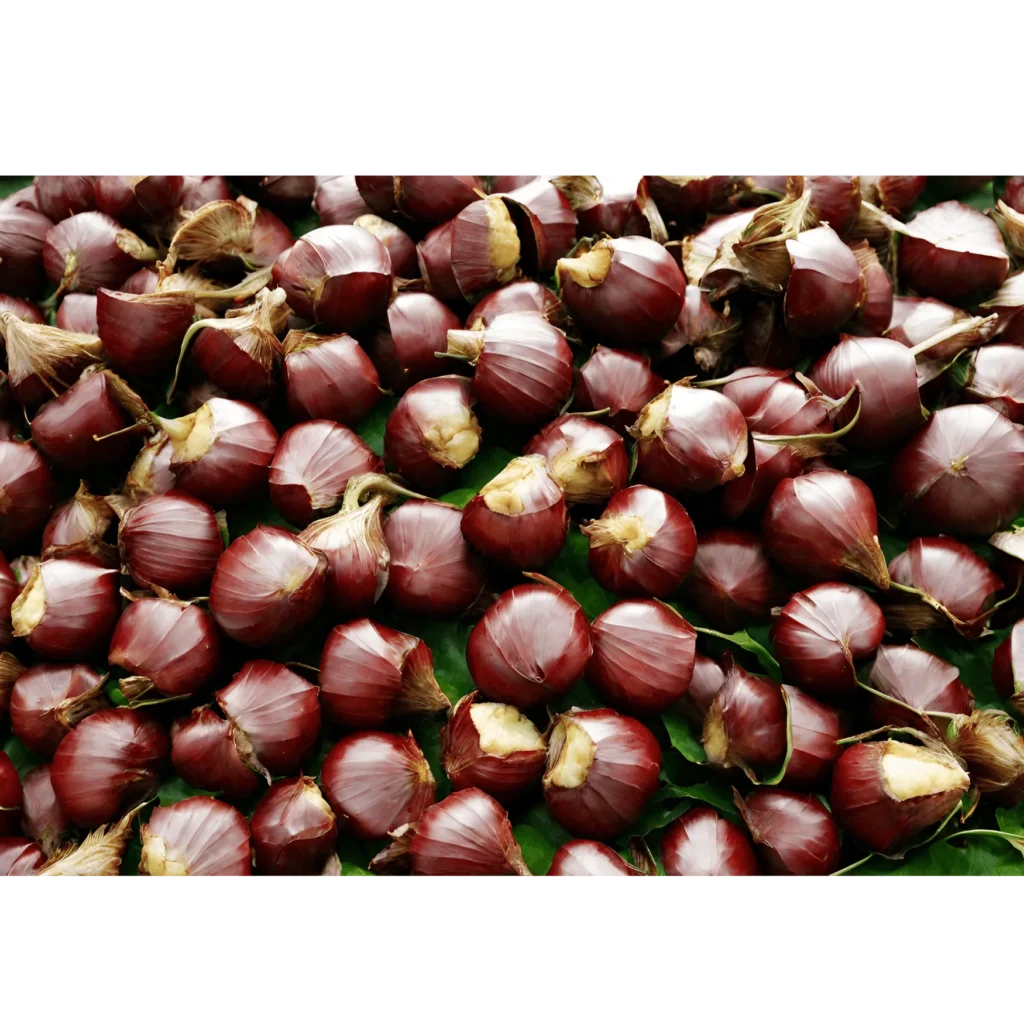
Before we discuss whether water chestnuts are a good fit for dogs or not, let’s take a moment to understand what water chestnuts are.
The first thing to note is that the name is misleading: water chestnuts are not nuts. These starchy tubers are aquatic vegetables, also known as Chinese water chestnuts, that grow in marshes, ponds, and slow-moving waterways. They are native to Asia, Africa, and Oceania but have been introduced to other parts of the world, including North America and Europe.
They have firm, white flesh covered by a thin, brown outer skin. The edible part is the crunchy flesh, and the skin is inedible; it is important to remove it before consumption.
Can Dogs Eat Water Chestnuts?
Now that we have discussed water chestnuts in detail, the real question remains: Can dogs eat water chestnuts? The answer is yes; dogs can eat water chestnuts, but only in small amounts. It is important to always peel and chop water chestnuts before offering them to your pet. Avoid canned varieties that contain extra salt and preservatives, as these can be harmful to dogs.
While water chestnuts are not toxic to dogs, it is always best to consult with your veterinarian before adding any new food to your dog’s diet, especially if they have any previous health issues.
4 Benefits of Feeding Water Chestnuts to Dogs:

Here are some potential perks of water chestnuts for dogs:
1. Rich in Nutrients and Vitamins:
Water chestnuts are a good source of essential nutrients like potassium, manganese, and calcium. They also contain fiber, which can aid in digestion and promote regularity. They have many vitamins like pyridoxine (vitamin B6) and vitamins A and C can help to protect your dog’s body from free radicals and disease.
2. Low in Calories:
Water chestnuts are a low-calorie, low-fat snack option for dogs, making them suitable for those on a weight management plan. For pet parents mindful of their dog’s weight, water chestnuts can be a satisfying, low-calorie treat. Incorporating them into your dog’s diet can provide a crunchy snack without worrying about excess calories.
3. Hydration Boost:
True to their name, water chestnuts have a high water content. This can be beneficial for keeping your dog hydrated, especially during warmer months. They help regulate digestion and promote the absorption of water into the bloodstream. This contributes to keeping your dog hydrated and improves their overall well-being.
4. Texture and Dental Health:
The crunchiness of water chestnuts can help promote dental health in dogs. Chewing on these treats may assist in reducing plaque and tartar buildup, contributing to better oral hygiene.
4 Health Risks of Feeding Water Chestnuts to Dogs:
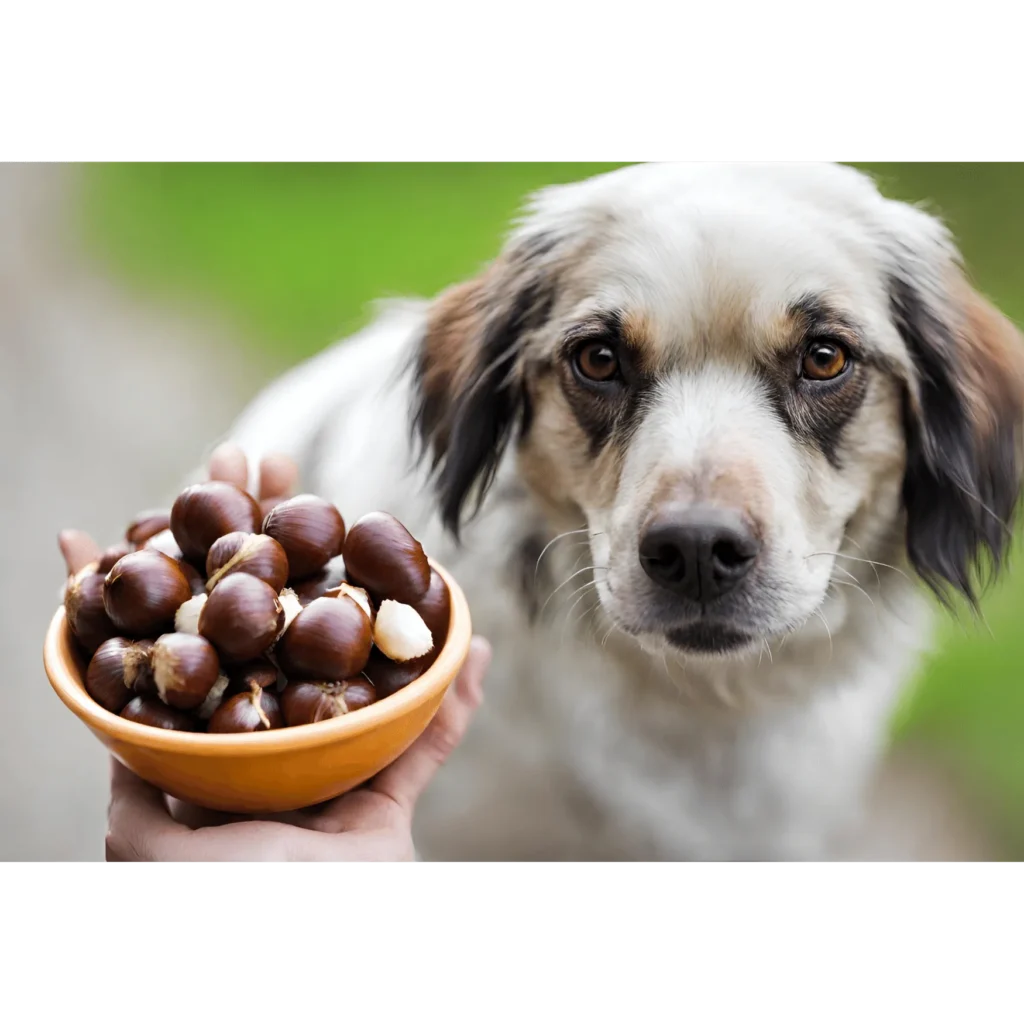
While water chestnuts offer several potential perks for dogs, it’s essential to be aware of the potential health risks associated with their consumption. Here are the key health risks to consider:
1. Individual Reactions:
Like any new food, there’s a risk of allergies. Some dogs may have individual sensitivities or allergies to water chestnuts. If you notice any adverse reactions, such as itching, vomiting, or diarrhea, discontinue feeding water chestnuts and consult your veterinarian.
2. Preparation Matters:
The way water chestnuts are prepared is crucial. If they are cooked with harmful ingredients like garlic, onions, or excessive seasoning, it can pose a risk to your dog’s health. Additionally, some dishes may contain oils, fats, or other components that are not suitable for canine consumption.
3. Added Preservatives and Salts:
Canned water chestnuts often contain added preservatives and salts, which can be harmful to dogs. Choose fresh water chestnuts whenever possible or rinse canned water chestnuts thoroughly before feeding.
4. Moderation is Key:
While water chestnuts offer benefits, moderation is essential. Excessive consumption may lead to digestive upset. You should always be mindful of portion sizes and consider your dog’s size, age, and individual health needs.
How to Safely Feed Water Chestnuts to Dogs?
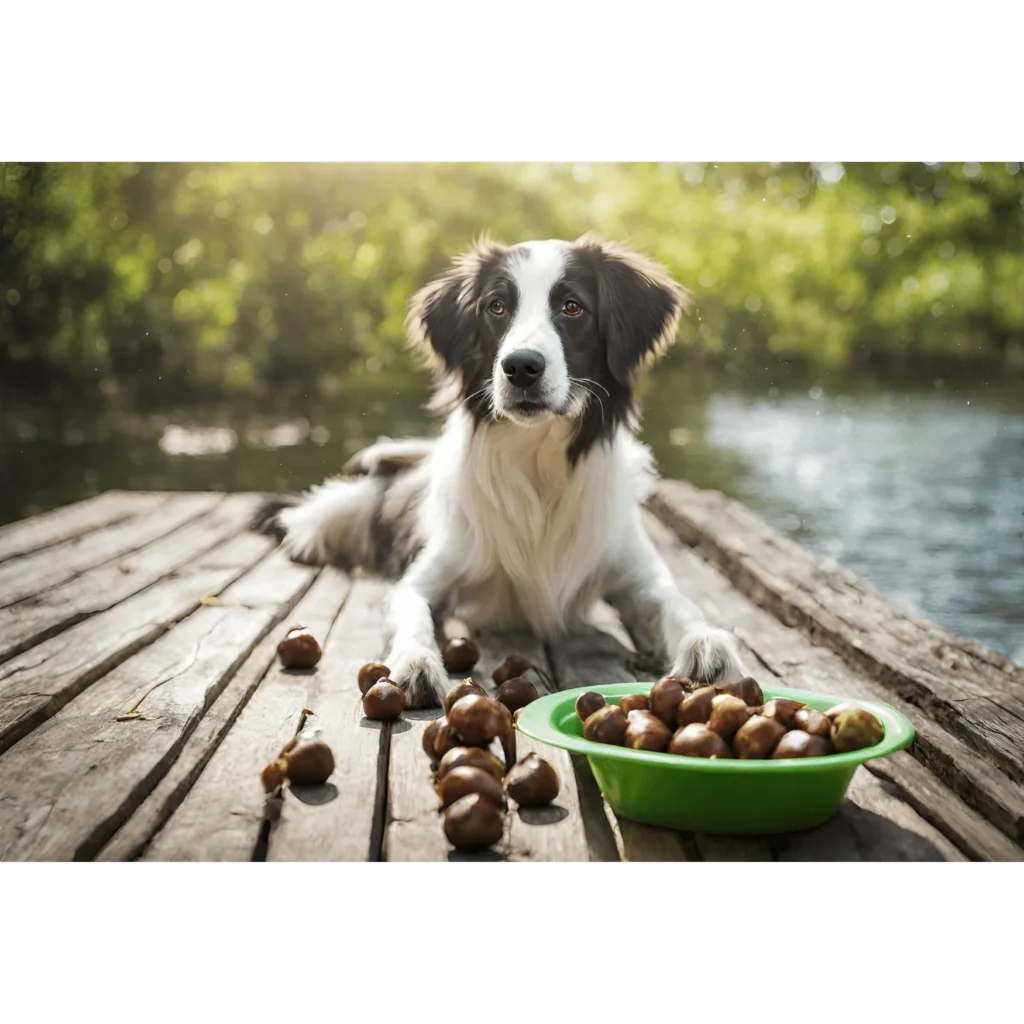
While water chestnuts are a healthy and fun treat for dogs, it is also important to know the right way to serve them. Improper preparation or excessive consumption can cause digestive upset, choking hazards, and other health concerns in dogs. Here’s a complete guide for your pup’s safety:
Preparation:
- Feed fresh or frozen water chestnuts to dogs to avoid any added salt and preservatives that can be harmful to dog health.
- Peel the water chestnuts before feeding; the outer skin is tough and could pose a choking hazard for dogs.
- Cut them into small, bite-sized pieces before serving to help your dog chew and swallow them easily.
- Do not add any seasonings or salt, as these can be harmful to your dog.
- If using canned water chestnuts, rinse them thoroughly to remove excess salt and preservatives.
Serving:
- Start by serving them only a small amount and monitor your dog’s health for any signs of illness.
- Feed water chestnuts only as an occasional treat or reward for positive behavior, as they are not suitable for a balanced dog diet.
- Adjust the quantity based on your dog’s size; smaller dogs require smaller amounts than larger ones. Puppies and senior dogs may need even smaller portions due to their sensitive stomachs.
- Monitor your dog closely while they are eating water chestnuts to ensure they do not experience choking or digestive issues.
- If you notice any signs of illness such as vomiting, diarrhea, or other discomfort, stop feeding them immediately and consult with your veterinarian.
Additional Tips:
- Only feed them simple water chestnuts. Avoid feeding cooked water chestnuts with ingredients like garlic, onions, and excessive salt, as all are toxic to dogs and should be avoided.
- If your dog does not like water chestnuts or struggles to digest them, you can feed other healthy crunchy treats, such as carrots, apples, or green beans.
- For personalized advice regarding water chestnuts for your puppy, it is better to consult with your veterinarian.
By following these guidelines, you can safely feed water chestnuts to your dog. Remember, a healthy snack should always provide a rewarding and enjoyable experience for your furry friend.
Other Crunchy Treats That Are Safe and Healthy for Dogs:
Water chestnuts are not suitable for some dogs as they can cause digestive issues. For those seeking a good crunchy alternative to water chestnuts, fear not! Here are all the other alternatives to water chestnuts that can satisfy your dog’s urge to chew:
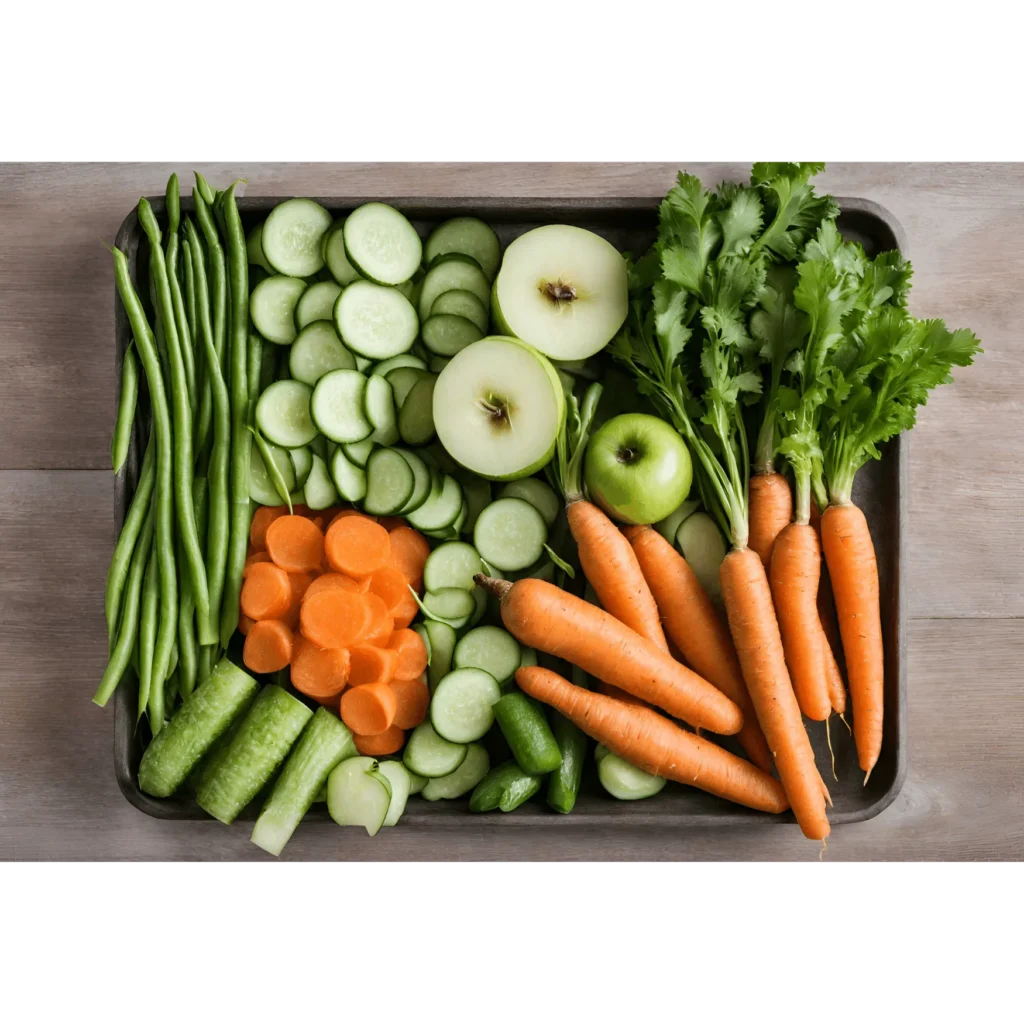
Fruits and Vegetables:
- Carrots: A carrot is a good choice for dogs as they contain a substantial amount of beta-carotene and fiber, promoting healthy digestion and vision. Wash them properly before serving them to your dog and cut them into bite-sized pieces to avoid choking.
- Apples: Apples are a sweet alternative to water chestnuts. They contain a good amount of vitamins A and C, which help boost the immune system. Core and slice the apple into thin pieces before feeding it to your dog.
- Green Beans: Green beans are a healthy snack for dogs. They are low in calories and have a high amount of fiber. When serving, steam or boil them until tender and ensure they cool before feeding.
- Celery: Celery is good for teeth. Its fibrous texture helps clean teeth and freshen breath. Make sure to cut them into small sticks for safe chewing.
- Cucumbers: Cucumber is a good option in the summer. They keep dogs hydrated and refreshed with a small amount of calories. Before serving them to your dog, wash them properly and cut them into small pieces to avoid choking.

Other Crunchy Treats:
- Beef trachea: These natural chews provide dogs with a long-lasting source of enjoyment and help clean teeth. It’s important to choose beef trachea that is free of artificial additives.
- Frozen bully sticks: These frozen treats offer a satisfying chewing experience for dogs with dental hygiene benefits. They are made from beef pizzle. Only feed bully sticks that have natural ingredients.
- Air-dried meat treats: Made by dehydrating real meat, preserving its nutrients and natural flavor without any harmful additives. Choose air-dried treats made from a single-source protein and avoid those with fillers or grains.
Important Considerations:
- Beef trachea: Always consult your veterinarian. It is best to consult with your veterinarian before introducing any new food to your dog’s diet. They give you the best personalized advice according to your dog.
- Moderation is key: Always feed every new treat in moderation to check if that is a good fit for your dog or not and then gradually increase them.
- Size and age matter: Feed your dog according to their size and age. Small dogs need a smaller portion than larger ones.
- Monitor your dog: While they are eating any new treat, monitor them closely for any signs of digestive or other health issues.
Conclusion:
In summary, water chestnuts can be safe for dogs if served in a dog-friendly manner. By understanding the benefits and being aware of potential risks, you can make informed decisions about whether to include these crunchy delights in your dog’s treat repertoire.
If your dog has digestive sensitivities, allergies, or any experience with choking hazards, then avoid feeding water chestnuts to them. You can try feeding other crunchy alternatives to water chestnuts, such as carrots, apples, green beans, celery, cucumbers, beef trachea, frozen bully sticks, and air-dried meat treats.
Always remember to consult with your veterinarian before adding any new food to your dog’s diet. A healthy and happy dog is a food-loving dog, but always prioritizes their well-being by making informed choices about their diet.
FAQs:
Q: Can dogs eat canned water chestnuts?
No, it is not recommended to feed canned water chestnuts to dogs. Canned varieties contain harmful elements such as additives or preservatives. Fresh, peeled, and properly prepared water chestnuts are always best for a dog’s health.
Q: Can dogs have raw water chestnuts?
Yes, dogs can eat a small amount of raw water chestnuts. However, always peel and chop them before serving to your dog. This helps lower the risk of digestive issues and ensures safer consumption.
Q: Can Dogs Have Water Chestnut Skin?
It is not recommended to eat water chestnut skin. The skin may be tough and cause difficulty in digesting for dogs, leading to digestive discomfort. It is best to peel water chestnuts to minimize any type of risk.
Q: Can Dogs Have Water Chestnut Seeds?
No, water chestnut seeds are not good for dog health. The seeds might pose a choking hazard or cause digestive issues. To avoid any type of risk, peel and chop the water chestnuts before serving them to your dog.






